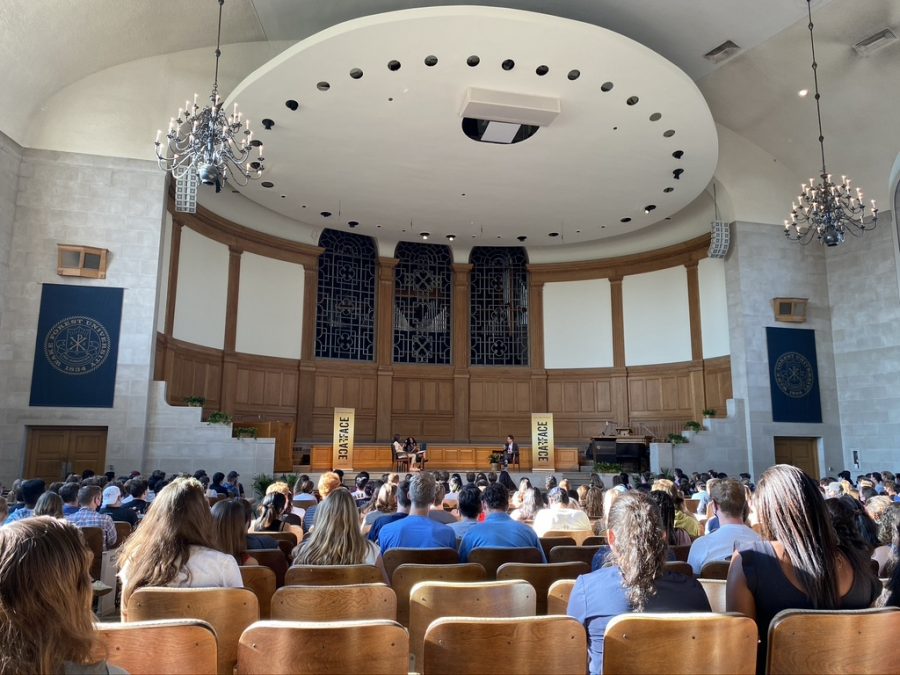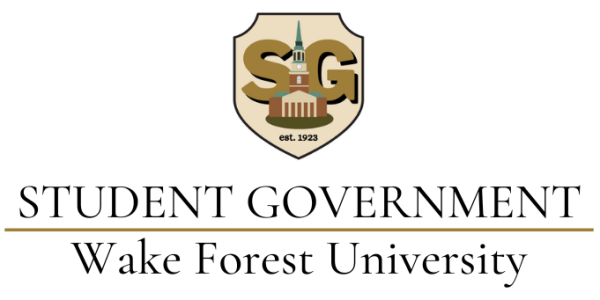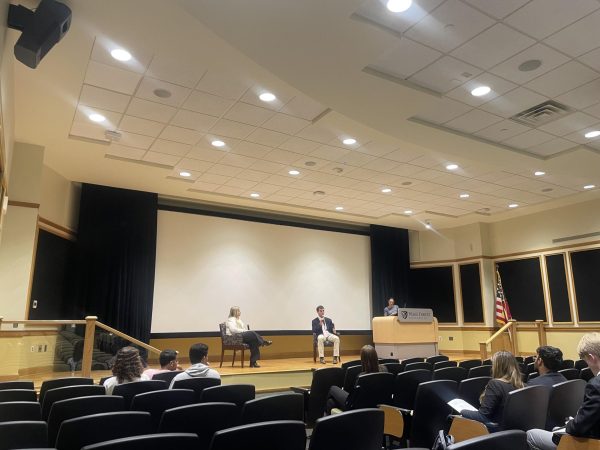Malcolm Gladwell speaks at WFU
Gladwell shared his advice on sustainability, citizenship and life at two moderated events
September 16, 2021
To kick off the Face-to-Face series, renowned journalist, podcaster, New York Times-bestselling author and New Yorker staffer Malcolm Gladwell brought progressive ideas about reconceptualizing the world and higher education, along with much-needed humor and humility, to reengage the Wake Forest and Winston-Salem community after a long year of Zoom.
The keynote address drew a sizeable crowd for a moderated conversation with Wake Forest Vice President for University Advancement Mark Petersen on Tuesday Sept. 14. in the LJVM Coliseum. Before the keynote event, Gladwell also answered questions during a special student-only event in Wait Chapel. The conversation was moderated by two undergraduate Leadership and Character scholars, sophomores Rute Ayalew and Sofia Ramirez Pedroza.
In typical Gladwell fashion, both of these moderated conversations quickly developed into a series of tangents, which included insightful pieces of knowledge regarding detergents that can be used in cold water to decrease our environmental impact to the benefits of using dogs that can detect COVID-19 in order to improve public health.
Gladwell’s jovial personality throughout the event and his breadth of knowledge illustrated his maxim: “If you are someone who enjoys work, all good things flow from that.”
While passionately discussing these topics Gladwell quickly established himself as jack-of-all-trades. He is, at heart, a journalist, and, as such, shows a bona fide interest in investigating and learning about a myriad of topics, which is rare in a world with professions that incentivize pursuing narrow paths of specialization.
“Journalism is about showing that this thing that you thought wasn’t interesting is actually interesting,” Gladwell said.
Gladwell took his investigation one step further by inviting others to consider innovative ideas based on his research about society and to reconsider what they thought they already knew.
Senior and President’s Aide Lauren DeMarco, a huge fan of Gladwell’s work, found his remarks were thought-provoking.
“He is so brilliant and articulate and investigates commonly-held practices and standards in such an innovative way,” DeMarco said. “He posed some really challenging suggestions and ideas about forgiveness and learning that made me reflect on how I carry out these principles in my own life.”
In considering how to answer what is being asked of universities today, Gladwell responded that many of the questions that are being asked are not the ones that really matter. He questioned their focus on traditional college aspects of football and brand value, and instead, asked universities to prioritize the goal to “produce good citizens.”
Regarding the intermediary steps involved in this process of creating better humans, Gladwell also shared a few tips based on his experience running the gamut from an examination of diversity in the Air Force and hiring practices, to his personal interest as a runner in the decathlon.
“We want people to be well rounded,” Gladwell said as he encouraged people to train and to hire a more diverse set of individuals who are proficient at a wide variety of tasks.
According to Gladwell, the focus should be less on the individual, whether that be a person or a narrow event, and more on teamwork and how members of a team can excel in different assignments or perform well in many different situations.
He also spoke to the collaborative nature of in-person meetings and the free-flowing exchange of ideas between people. In a liberal arts institution like Wake Forest, he emphasized the opportunity for growth as students meet people who are different from one another.
“Willingness to accept difference is something I grew up with,” Gladwell — who was raised by a Black mother and a white father in Canada (a nation he calls “effortlessly diverse”) — said.
He encouraged students to embrace the interactions they have during college and to be more open-minded by engaging with different perspectives and ideas. He emphasized the importance of grace in these conversations too. In doing so, he built on the arguments he makes in his book “Talking to Strangers”, which covers the art of forgiveness.
“We need to be more forgiving and extend more grace to people,” Gladwell said.
The lessons he offered for striking conversations appear timely as Wake Forest begins to rebuild community through more in-person events like the Face-to-Face speaker forum after many virtual meetings during the COVID-19 pandemic.
“I was encouraged and inspired by how Gladwell valued finding happiness in everyday life as well as forgiving those around us, and how these things are contagious to those around us,” sophomore Andrew Villiger, who attended the event, said.
As students again expand out their social networks and form meaningful connections with those around them, Gladwell’s tangents provide a model for scholarly, social and personal exploration, as well as general growth throughout college and life at large.






















